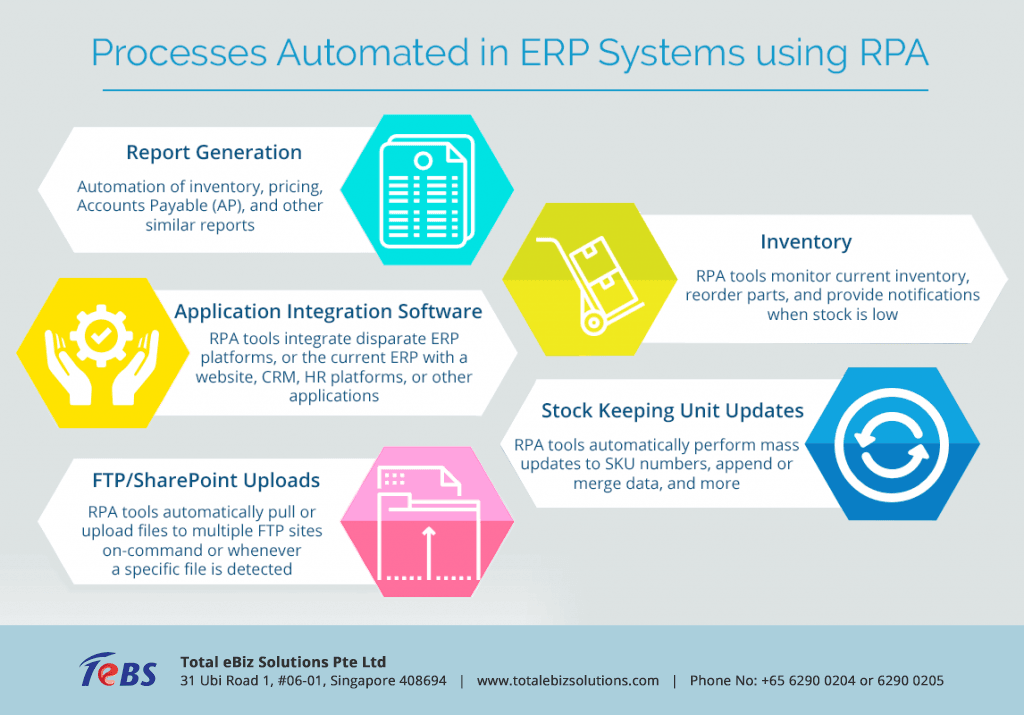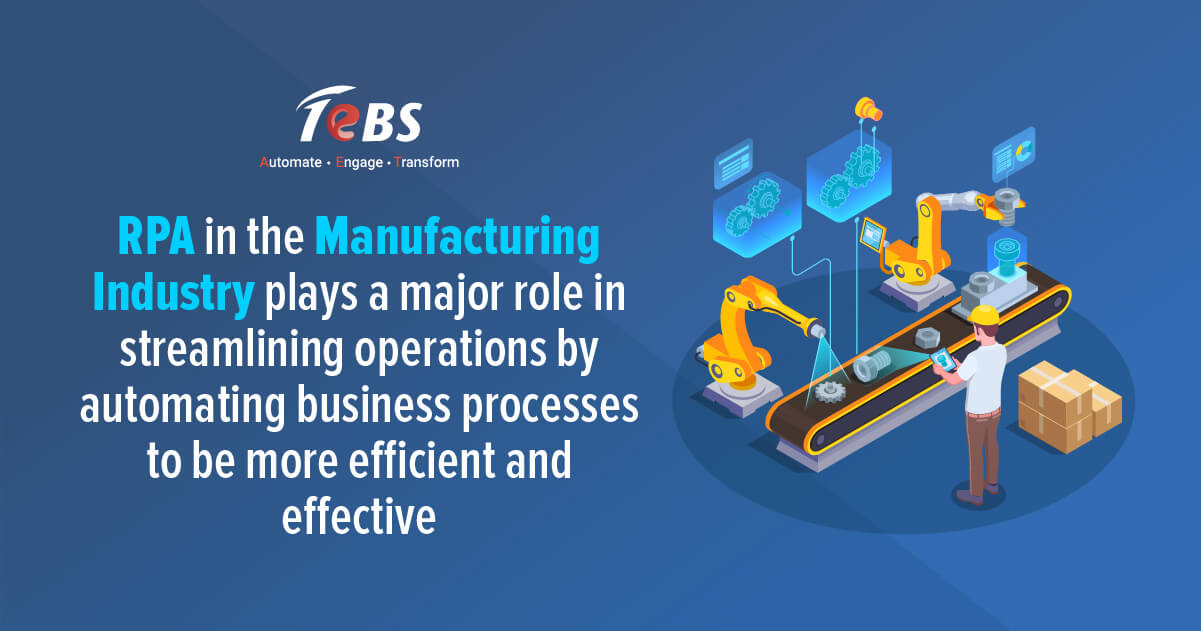RPA in the Manufacturing industry plays a major role in streamlining operations by automating business processes to be more efficient and effective
Physical robots are used for assembling, testing and packing products in several manufacturing companies. Despite this, companies face pain points in common back-office processes such as keeping up with new regulations, lack of skilled labor, inventory management etc. In such situations, companies fail to provide exceptional services and innovation to customers, reduce costs and maintain seamless communication with suppliers.
With Robotic Process Automation (RPA), it is possible for manufacturers to automate significant back office processes thereby identifying and improving deficiencies within. RPA enables companies to cut down complexities involved in managerial processes, creating an agile back office. The implementation of RPA helps manufacturing companies to strengthen supply chain procedures, bridging the gap between repetitive activities such as quoting, invoicing, accounts payable, accounts receivable, general ledger operations etc.
RPA enables process streamlining, increase in efficiency, reduction in manual errors and rework time, leading to quality improvements in processes and operational performance.
The 4 benefits of implementing Robotic Process Automation in Manufacturing Industry are:
- Elevated levels of regulatory compliance
- Deeper, real-time process monitoring and analytics
- Bridging paper with digital platforms
- Digitized communication
Intelligent ERP Automation with RPA
Manufacturing is an ERP driven industry and there is no doubt that RPA is poised to transform businesses in this domain.
Trust RPA to intelligently automate various time-consuming functionalities within enterprise resource planning (ERP) systems such as Oracle, SAP, and other platforms. Simple drag-and-drop scripting enables users to automate many of the manual business processes that cost them time and money. RPA tools effortlessly work through the presentation layers of ERP, CRM, and SCM systems because of which complete business rules and audit trails are maintained to ensure security and traceability.
RPA Tools work with ERP systems to automate several processes.

RPA has been helping companies to make their business processes simpler and faster to complete.
Some of the areas where RPA is used are
With streamlined accounts receivable processes, companies reduce manual work, errors, and decrease day sales outstanding (DSO). Automating the manual process of matching remittance advice information with invoices and by reconciling them in the SAP system has helped companies safeguard their reputation. They now provide customers with good service thus improving customer satisfaction.
A major challenge for the accounts payable team is receiving non-standard invoices in different formats, which have to be manually checked to determine if it is from an approved vendor, whether the PO matches with the ERP system, and so on. Data from various invoices is then transferred into a standard company format, by the team.
The entire process is repetitive and prone to human error, leading it to become inefficient and complicated. RPA becomes extremely crucial at this stage: all the way from capturing invoice details using Optical Character Recognition (OCR) technology, to approving the invoice based on set rules and pre-approved workflows.
Bill of Material comprises of a list of components such as raw materials, sub-components, and other material required to manufacture a product. It is referred to by all employees, to know what to purchase, how to purchase, where to purchase, and for detailed instructions such as how to assemble a product and pack it.
The document is extremely critical for manufacturing companies such that even a single miss or an error could lead to issues such as inferior material planning, inaccurate product cost, escalated production cost, and even delay in shipment. Considering the significance that BOM has in the manufacturing industry, it becomes even more important to use RPA to ensure its accuracy.
Invoice processing is a time-consuming and excruciating process because invoices have to be manually checked, crosschecked, sent for approval, and so on.
The entire process takes time and is prone to errors due to multiple levels of human scrutiny. RPA assists in scanning, reading and checking the invoices against the PO, automatically sending the invoice for approval to the concerned department to fix the discrepancies, entering the invoice into the accounting system once it is fixed, and finally marking the purchase order as completed.
RPA provides workforce intelligence allowing the manufacturing industry to unleash its full potential!!





